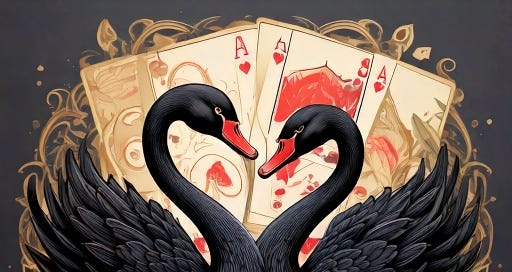Why resilience starts by preparing for the cards already in the deck, even if you don’t know when they’ll be played…
Let me start with a story.
On the night of September 11, 2012 (the Benghazi attacks), I was serving as President Obama’s Daily Intelligence Briefer and preparing his intelligence book for the morning brief. Reports from Libya were fragmented, contradictory, and politically inconvenient. Analysts were already overloaded with noisy reporting from the Cairo protests, and we were drowning in open-source chatter mixed with classified assessments, some of which were misleading, incomplete, or speculative.
In a moment like that, the challenge isn’t just analyzing the data. It’s finding the signal in the noise and knowing what’s relevant, what’s real, and what’s just messaging. And that night, it was hard. Really hard.
But something about the Libya reporting felt different. To me, the timing, the precision, and the coordination didn’t match the pattern of spontaneous unrest; it felt like a planned attack.
I had four hours to brief the President. The prevailing assessment said “spontaneous protest.” My brain said, “deliberate terrorist attack.” And I made the call to override the official analysis.
I wasn’t certain, but I was clear.
And that moment taught me something I’ve carried into every room since: if you treat a Wild Card like a Black Swan; if you pretend it was unpredictable just because it was uncomfortable, you don’t just miss the risk. You amplify the damage.
Because in moments of chaotic information, like the ones we’re experiencing again today, in an era of disinformation, distrust, and information overload, and with the return of unpredictable leadership, conflicting policy signals, and rising geopolitical tension, we don’t just need more data. We need discernment.
In today’s information environment, trade policy can shift on a tweet, tariffs can be levied or rescinded in days, and domestic institutions, including the Federal Reserve, can be caught in political crossfire. Even the idea of firing Jerome Powell, once unthinkable, is now whispered in headlines.
In this kind of environment, markets struggle to separate policy intent from political theater. Analysts face the same challenge I faced that night in 2012: separating what’s real from what’s noise, what’s signal from what’s spin.
That’s why we must prepare not just for the obvious, but for the ambiguous, and not just for what’s visible, but for what’s possible.
That’s the difference I want to explore. Too often, we allow the language of surprise to justify a lack of preparation. We fall back on phrases like 'no one could have seen this coming' not because the warning signs weren’t there, but because we didn’t want to see them.
And this tendency isn’t limited to governments. It’s deeply embedded in corporate strategy, financial markets, and organizational culture.
The business world loves to talk about Black Swan events. The term has become shorthand for any crisis that feels big, fast, and unexpected.
But in geopolitics, and strategy more broadly, the obsession with Black Swans misses the point. Because most disruptions aren’t truly unpredictable, they’re not random. And they’re not unknowable.
They’re Wild Cards, or events we knew were in the deck all along.

What’s the Difference?
A Black Swan is something no one saw coming. It’s not just rare; it’s considered outside the realm of typical expectation. Three things characterize black Swans: they are unexpected, they have a massive impact, and they are rationalized only in hindsight. They represent a failure of imagination, or more often, a failure of systems to tolerate ambiguity and uncertainty.
Because Black Swans are assumed to be unknowable, they’re often used as excuses for not preparing. But the truth is, very few events are true Black Swans. I've seen a few myself in my career, and even then, what made them dangerous wasn't their novelty. It was the fact that no one wanted to name them until it was too late.
Keep reading with a 7-day free trial
Subscribe to Geopolitigal’s Kaleidoscope to keep reading this post and get 7 days of free access to the full post archives.




